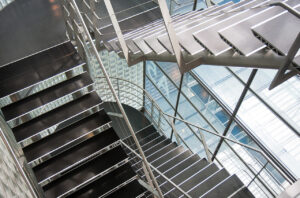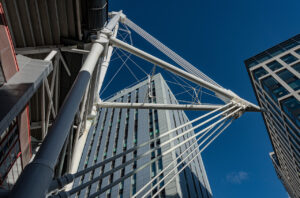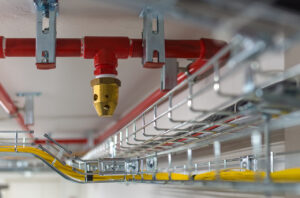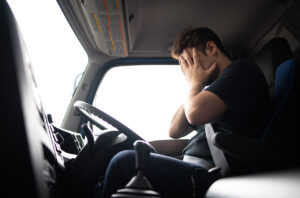Whether used in the home (e.g. medical oxygen) or in a workplace (e.g. welding gasses) where gas cylinders are in use it is often important that spares are readily available and it will often be the case that a number of cylinders will be present in any premises where they are used.
There are a number of hazards associated with gas cylinders including manual handling issues related to their weight, size and shape.
Hazards that are associated with the pressure at which the gas is stored, the inadvertent release of pressure may cause injury or damage to property. A dangerous release of pressure could occur in a number of circumstances for example if a cylinder was heated in a fire, a cylinder fell over or was impacted and was damaged or if there was an incorrect operation of the outlet valve.
Finally, there are hazards associated with the gas itself, some gasses may be inherently harmful, may react dangerously with other substances, may be flammable or may cause or intensify a fire. Most gasses, especially if released in a confined space, can be hazardous to life or the environment.
It is important that cylinders are stored safely when not in use to minimise the associated risks.
The British Compressed Gases Association (BCGA) is a trade association which publishes a range of codes of practice, guidance notes and other safety information for the industry.
The BGCA recently published an updated version of their Code of Practice for the Storage of Gas Cylinders.
The Code of Practice recommends well ventilated, secure, outdoor storage for gas cylinders and gives guidance on the construction of suitable storage facilities.
The Code of Practice also includes recommendations for the management of cylinder stores, emergency planning and the safe movement of cylinders.
Copies of CP44 The storage of gas cylinders. Revision 1: 2022 are free to obtain from the BGCA website at: https://bcga.co.uk/publications/
Please speak to your normal PIB Risk Management contact or get in touch using [email protected] if you have any questions about safe use of gas cylinders.

Second Staircases In New Tall Residential Buildings

A New Regime For Residential Buildings In Wales

Vibrating Alarms And Painted Cables – New Guidance Available

Two-Tyred: Driver Fatigue

New E-Bike and E-Scooter Safety Guidance for Public Transport Operators
